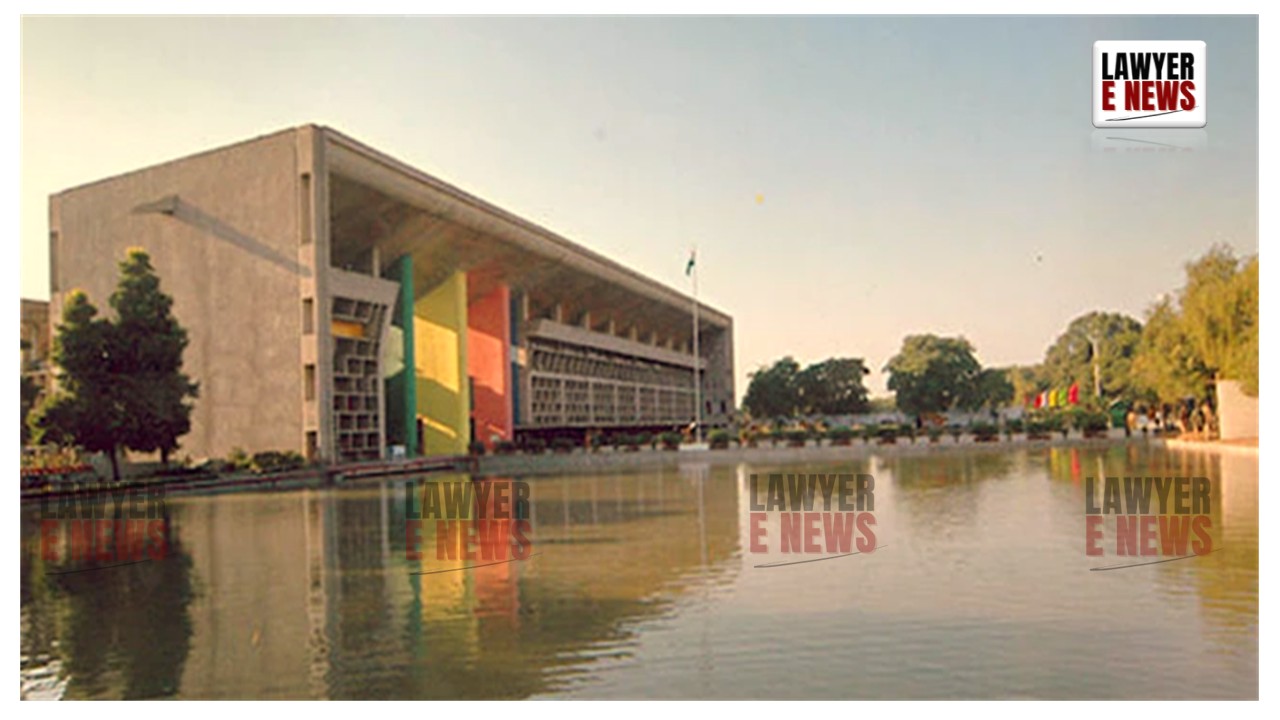-
by Admin
16 February 2026 1:47 PM



Punjab and Haryana High Court dismissed a petition under Section 482 of the Code of Criminal Procedure (CrPC), challenging a revisional court order that quashed the summoning of the respondent, a public servant, for defamation under Sections 499 and 500 of the Indian Penal Code (IPC). The court upheld the revisional court’s finding that prior sanction under Section 197 CrPC was necessary for prosecuting a public servant acting in the discharge of official duties.
The case originated from a complaint filed by Gurmail Singh (the petitioner), alleging that Preet Inder Singh Bains (the respondent), a Block Development and Panchayat Officer, defamed him by filing a complaint that Singh interfered in an official auction process. The petitioner claimed that the complaint was defamatory, causing him financial and mental distress and lowering his reputation in society.
The Judicial Magistrate initially summoned Bains to face trial under Sections 499 (defamation) and 500 (punishment for defamation) IPC, as well as Section 120-B (criminal conspiracy) IPC. However, upon revision, the Additional Sessions Judge quashed the summoning order, stating that the respondent was a public servant acting in the discharge of his official duties, and thus, prior sanction under Section 197 CrPC was necessary for prosecution.
The primary legal issue was whether a public servant could be prosecuted for alleged defamatory statements made in the course of official duties without prior sanction from the government.
The court also examined whether the petitioner had presented sufficient evidence to establish a prima facie case of defamation under Section 499 IPC.
Public Servants and Requirement of Sanction Under Section 197 CrPC
Justice Manisha Batra emphasized that Section 197 CrPC mandates prior sanction from the government before prosecuting public servants for acts committed in the course of their official duties. The court stated:
"Section 197 of the Code of Criminal Procedure is an embargo on the power to take cognizance of an offence allegedly committed by a public servant, save by or with the sanction of Government, if he is accused of any offence alleged to have been committed by him while acting or purporting to act in the discharge of his official duty."
The court noted that the respondent’s actions — filing a complaint about the petitioner’s interference in the auction process — were related to his official duties as a public servant. Since the complaint was filed within the respondent's scope of duty, prior sanction was required. The absence of such sanction rendered the Magistrate’s summoning order invalid.
Defamation and Sufficiency of Evidence
The court also scrutinized the evidence presented by the petitioner to substantiate the defamation claim. Justice Batra observed that merely making general allegations of reputation loss without specific proof of lowered standing in the eyes of third parties does not satisfy the requirements of Section 499 IPC. The court stated:
“Except for the general allegations that the petitioner had been humiliated and insulted in the village and society and he suffered financial loss and was mentally disturbed due to filing of a complaint by the respondent, there is no substance to establish the criminality of the respondent.”
The court found that the petitioner’s witnesses did not testify that their opinion of the petitioner was lowered as a result of the respondent’s actions. The testimonies only contained vague claims of insult and humiliation without identifying specific individuals who viewed the petitioner differently. Therefore, the court held that the evidence was insufficient to constitute defamation under Section 499 IPC.
The court referenced several Supreme Court judgments to reinforce its decision:
M/s Pepsi Foods Ltd. v. Special Judicial Magistrate (1997): This case set the precedent that summoning an accused in a criminal case is a serious matter and that magistrates must carefully apply their minds before issuing summons.
Mehmood Ul Rehman v. Khazir Mohammad Tunda (2015): The Supreme Court held that magistrates must demonstrate clear satisfaction that a complaint constitutes an offence, requiring more than perfunctory issuance of process.
In dismissing the petition, the High Court upheld the revisional court’s decision to set aside the Magistrate’s summoning order, reiterating that the respondent was protected under Section 197 CrPC. The court concluded:
“The learned Revisional Court had rightly observed that the order passed by the Magistrate thereby summoning the respondent under Section 500 of IPC showed lack of appreciation of evidence and application of mind and came to be passed in a mechanical manner.”
The court emphasized that the revisional court's order was well within jurisdiction and did not warrant interference.
Petition Dismissed: The Punjab & Haryana High Court dismissed Gurmail Singh’s petition, upholding the revisional court’s decision.
Requirement of Sanction Confirmed: The court confirmed that public servants require prior sanction under Section 197 CrPC for actions undertaken in the discharge of official duties.
Insufficient Evidence of Defamation: The court found that the petitioner failed to present specific evidence showing that his reputation was diminished in the eyes of particular individuals, as required for defamation under Section 499 IPC.
Date of Decision: October 22, 2024
